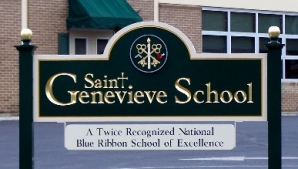It is said that the student teaching experience varies from school to school, from teacher to teacher. That you get out of it exactly what you put into it. Those statements couldn’t be truer especially as they relate to several students last fall whose student teaching experience was a little different (and perhaps even a little more groundbreaking) than others.
As a result of a grant from the Greater Philadelphia Instructional Coaching Program: Building High Quality Experiences for Preservice Teachers (GPIC), of which the College was a sub-award participant in September 2013, close to 100 students across four member institutions (CHC, La Salle, Eastern University and Cabrini College), have received a unique and beneficial student teaching experience that emphasizes individual development and mentoring.
The program, which is supported by Kathleen Anderson, Ed.D., assistant to the president for special projects and project manager on the grant, and Nancy Levitt M.Ed., education partnership and student teaching coordinator and lead faculty on the grant, was designed with the goal of “development and implementation of professional learning communities that provide strong experiences for student teachers who are supported by cooperating teachers, university supervisors, instructional coaches and school principals.”
“It was phenomenal having a mentor teacher who was just as invested in my experience as I was,” says Mary Katherine Ortale ’16, one of nine students in the second cohort. “I definitely think the grant and how it was structured helped us to have this different kind of dynamic for student teaching that others don’t necessarily have.”
“It really did make a difference,” adds Lyndsay Gobolos ’16, who also went through the program. “My mentor teacher and I were on the same page and there was this great communication. Every week she would write goals and I would write goals and then we would discuss if they were met and if not what we could to do ensure they were in the future.”
Structuring the Grant
Under the grant, each of the four institutions recruited partnership grade schools whose principals and faculty would take four courses over 18 months to earn endorsements in instructional coaching. They would then act as mentors to the student teachers.
These courses are designed to coincide with the student’s own progression in the classroom as a way to provide the mentor teacher the best tools and practices to help the students succeed.
For CHC, cohort one was comprised of the principals and teachers from Jenks Academy of Arts and Sciences and Henry H. Houston Elementary School, two Philadelphia public schools with whom the College has had a long-standing partnership.
Cohort two continued to work with Jenks and Houston and added William H. Ziegler Elementary, another of CHC’s partnership schools, and St. Genevieve, where Ortale and Gobolos, both early childhood education majors, taught during the fall semester.

“We’ve been sending student teachers to St. Gen’s for over 10 years and have had this great relationship with them,” says Levitt. “It was great to be able to use them as one of our partner schools for cohort two.”
Since 2013, more than 20 CHC students have taken part in this innovative program, helping them develop important relationships and have the best, and most all-inclusive, student teaching experience possible. It also has put the College on the ground floor of something that could one day be revolutionary and has opened the doors for many of these students to develop deeper professional relationships that have led to long-term substitute teaching positions and full-time jobs.
Last semester, Chestnut Hill College offered the courses on its campus for the first time. In the future, the College plans to open the four-course instructional coaching endorsement open to anyone interested in the program.
“It’s been amazing to see this program in action, to see the higher education institutions partnering with these elementary schools and to have their teachers and our students growing and learning together. It’s just been incredible,” says Levitt.
How the Program Grows
According to Levitt, training “turnaround teachers” is one of the most important elements of the program and one which broadens its reach. Turnaround teachers are those who are going to be trained in instructional coaching by supporting teachers at their schools who have taken the course and who have earned their endorsement.
“It really is a great way to keep the program alive and to keep it growing so that more and more students can have the kind of positive experience I did,” says Ortale.
This training also increases the likelihood that Levitt is able to place her students with a teacher who has gone through the program and been trained in instructional coaching, something she believes is very important in order to give the students the “best possible mentor.”
“I try to keep feeding these teachers new students because research has shown that who the cooperating teacher is has a huge impact on the student’s success as a new teacher and their wanting to stay in the field,” says Levitt.
“This program really is about the students,” she adds. “They are the focus, and anything we can do to ensure they have the best and most fulfilling student-teaching experience, we are going to do it.”
For more information on the GPIC grant, visit their website.
— Marilee Gallagher ’14



